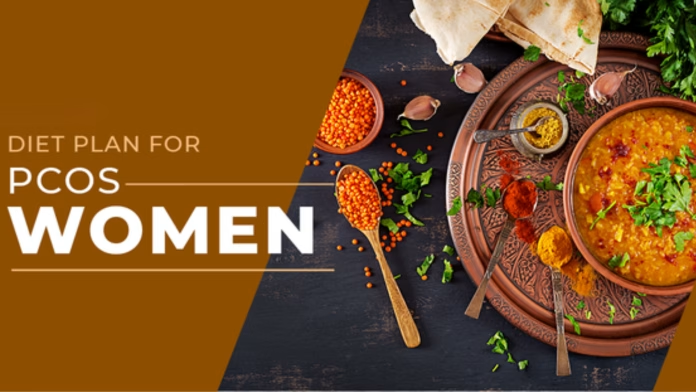Are you struggling with PCOS (Polycystic Ovary Syndrome) and looking to manage your weight effectively? You’re not alone!
PCOS is a common hormonal disorder that affects many women, and one of the primary concerns associated with it is weight gain or difficulty in losing weight. But here’s the good news: you can take control of your health and achieve weight loss by making simple yet impactful changes in your lifestyle, especially in your diet. In this article, we present a comprehensive PCOS Diet Chart for Weight Loss, approved by MBBS doctors, that provides guidance on what to eat and what to avoid. By following this dietary plan, you can optimize your nutrition, balance your hormones, and work towards shedding those extra pounds. So, let’s dive in and embark on a journey towards better health and well-being by embracing a PCOS-friendly diet. Remember, with the right approach and lifestyle modifications, you can effectively manage PCOS and achieve your weight loss goals.
Why Do Women With PCOS Tend to Gain Weight?
PCOS (Polycystic Ovary Syndrome) is a hormonal disorder that affects many women worldwide, and one of the most common symptoms associated with it is weight gain. The intricate relationship between PCOS and weight gain is complex and multifaceted. Women with PCOS often experience hormonal imbalances that can lead to an increased production of insulin, which in turn affects the body’s ability to regulate blood sugar levels and metabolize carbohydrates. As a result, excess insulin can promote fat storage, making it challenging for women with PCOS to lose weight. Additionally, PCOS can also disrupt the normal functioning of hormones involved in appetite regulation, causing increased hunger and cravings, further contributing to weight gain. Understanding the connection between PCOS and weight gain is crucial in formulating an effective strategy for weight management. By adopting a tailored approach that includes lifestyle modifications, dietary changes, and regular physical activity, women with PCOS can address weight gain and work towards achieving a healthier body composition and overall well-being.
PCOS Diet Plan For Weight Loss
What to Have :
- Early Morning:
- A glass of jeera water
- A glass of lemon water
- A cup of black coffee
- A cup of green tea
- Breakfast
- A bowl (1.5 cups) of ragi porridge and a boiled egg
- A bowl of poha with veggies
- Two besan chillas with a whole fruit and a glass of milk
- Two vegetable & millet idlis with sambar
- Mid Morning Snack
- A cup of sliced fruits or berries
- A handful of roasted almonds, walnuts or peanuts
- A cup of sprouts with veggies
- A cup of yoghurt with fruits and seeds
- Lunch
- A cup of brown rice pulao with vegetable raita
- Two bajra rotis with dal and cabbage or okra sabzi
- A stuffed whole wheat paratha with chicken or chana dal sabzi
- A bowl of parboiled brown rice with rajma
- Evening Snack
- A slice of toasted whole wheat bread with avocado or peanut butter
- A handful of roasted makhana
- A whole fruit with a glass of milk
- A cup of legumes and sprouts chaat
- Dinner
- A bowl of salad and moong dal khichdi
- Sauteed vegetables with protein (fish, chicken, paneer or tofu) and a glass of buttermilk
- Two whole wheat rotis with broccoli and chana dal curry and fruit salad
- A bowl of soup, quinoa upma and chia seed pudding
What Not To Eat:
- Tropical Fruits: Fruits such as bananas, mangoes, pineapples, and papayas tend to be higher in natural sugars and may have a greater impact on blood sugar levels.
- Dried Fruits: Dried fruits like raisins, dates, and dried apricots have concentrated sugar content and can lead to a rapid rise in blood sugar levels. It’s recommended to consume them sparingly or opt for fresh fruits instead.
- Watermelon: Although refreshing, watermelon has a high glycemic index, which means it can cause a rapid increase in blood sugar levels. It’s best to enjoy it in moderation.
- Grapes: Grapes are delicious but can be high in natural sugars. It’s advisable to limit their consumption or choose lower-sugar options like berries.





